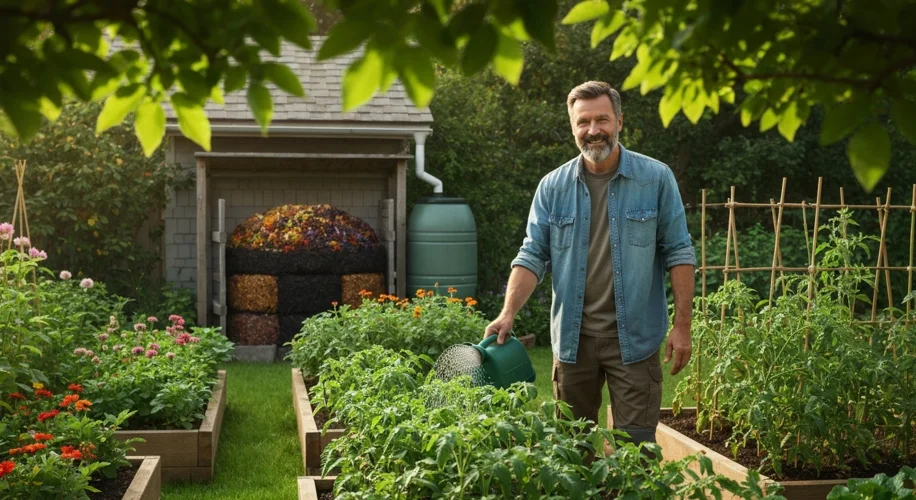Hey everyone, Elias here!
Lately, I’ve been thinking a lot about how we connect with our environment, right from our own backyards. My suburban Midwest garden has taught me so much, not just about growing food, but about living a little lighter on the planet. It’s amazing how a few simple practices can make a real difference, both for our gardens and for our homes.
The Magic of Compost
One of the biggest shifts for me was embracing composting. It sounds… well, a bit messy, doesn’t it? But honestly, it’s one of the most rewarding things you can do. I started with a simple bin in the corner of the yard, tossing in kitchen scraps like vegetable peels, coffee grounds, and eggshells. Yard waste like leaves and grass clippings join the party too.
What happens next is pure alchemy. Over time, these scraps break down into a dark, crumbly, nutrient-rich material that is absolute gold for your garden. My soil has never been happier, and my plants respond with incredible vigor. It’s a fantastic way to reduce waste going to the landfill and create the best possible food for your plants, all at the same time.
Every Drop Counts: Water Conservation
As a gardener, water is precious. I’ve become much more mindful of how I use it. One simple, yet effective, technique I’ve adopted is rainwater harvesting. I have a few rain barrels connected to my downspouts. This collected water is perfect for watering my vegetables and flowers, especially during dry spells. It’s free, it’s naturally soft, and it means I’m relying less on our municipal water supply.
Beyond rain barrels, I’ve also learned the power of mulching. A good layer of mulch around plants helps the soil retain moisture, reducing the need for frequent watering. Plus, it suppresses weeds, which is always a win in my book!
Beyond the Bin: Reducing Household Waste
Composting is a big part of waste reduction, but there are other ways too. I try to be more conscious of what I bring into the house. Opting for reusable bags, choosing products with minimal packaging, and repairing items instead of replacing them are small habits that add up. It’s about making intentional choices that minimize our footprint.
For me, gardening has been this incredible gateway to understanding sustainability. It’s about working with nature, not against it. Seeing how compost improves the soil, how conserving water helps my plants thrive, and how reducing waste makes a tangible difference – it’s all connected.
These aren’t drastic changes, just simple, practical steps. And the reward? A healthier garden, a healthier home, and a little more peace of mind knowing I’m doing my part.
Happy gardening and greener living!

